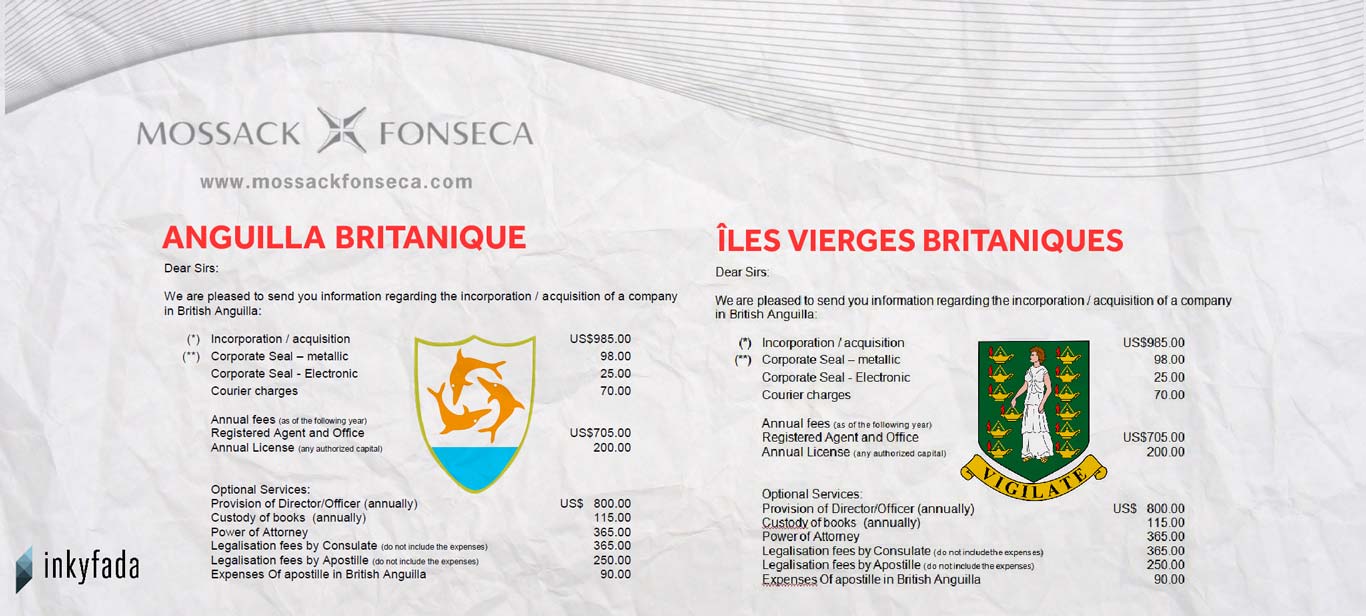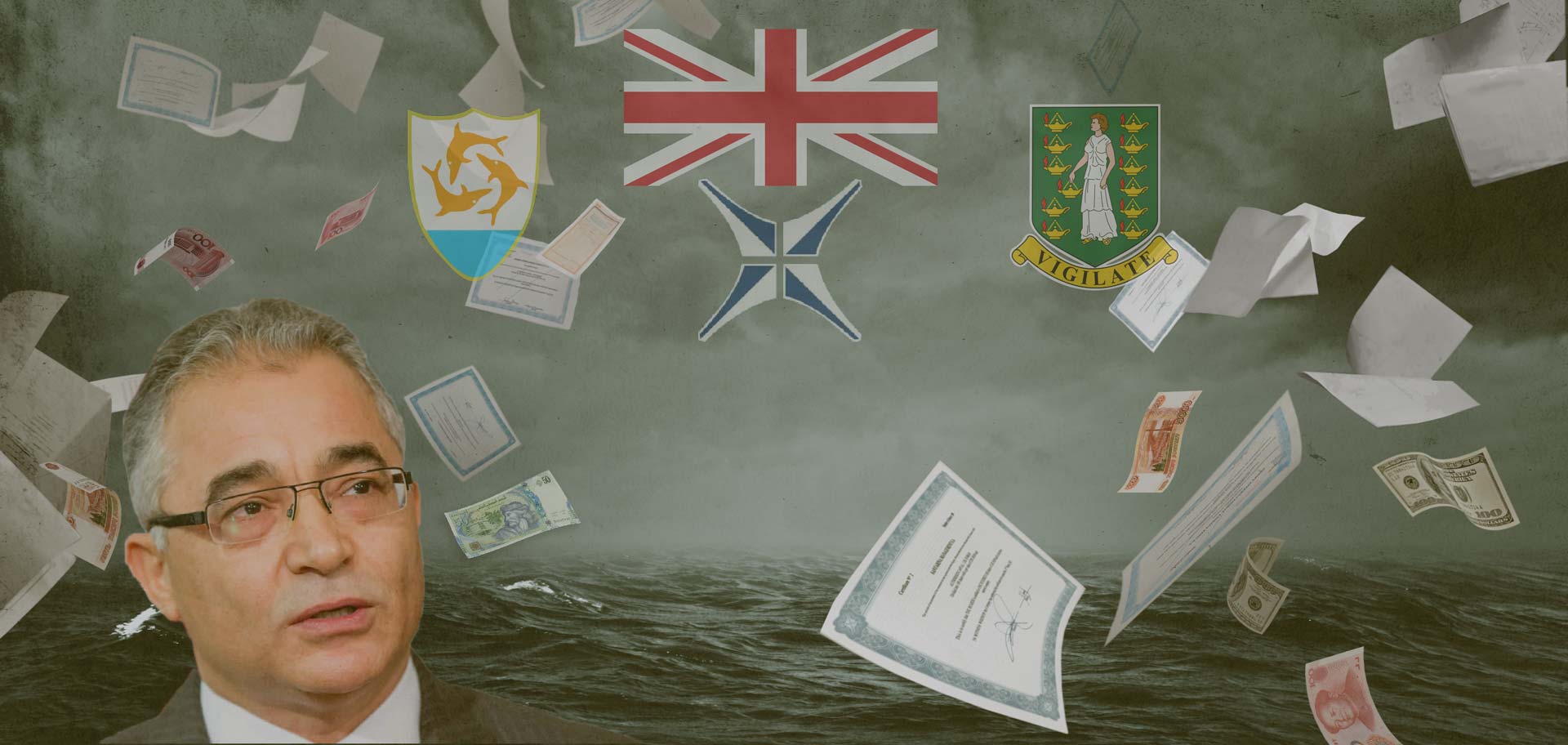Mohsen Marzouk first wrote to Mossack Fonseca to inquire about the incorporation process of an offshore company. Through an offshore company, Marzouk aimed to “hold financial investments and engage in international business.” The firm responded to his questions and provided documents detailing their various services. Marzouk’s next steps were simple: choose a preferred service and whether to incorporate in the British Virgin Islands or in Anguilla.
Can a politician residing in Tunisia represent the public interest of the country while choosing to relocate their business dealings abroad?
A FORMER student activisT REACHES the Presidential Palace
Mohsen Marzouk, now 50 years old, comes from Mahrès (Sfax governorate) and has been involved in politics since the 1980s. As a teenager, Marzouk took to politics and helped to build a leftist student movement. In 1987, Marzouk was detained for his activism, alongside his close working partner Chokri Belaid, but was pardoned by Ben Ali and released after one year. In 1989, Marzouk took up work with the Arab Organization for Human Rights.
In the 2000s, he joined the Freedom House, a US non-profit that promotes democracy worldwide, as its representative in North Africa.
In 2006, Marzouk’s communication with a representative of then-US Ambassador William Hudson was exposed by WikiLeaks. In the diplomatic cable, Marzouk stated that “without open political dialogue in Tunisia, it was impossible to ensure orderly succession after Ben Ali."
Marzouk believed that to see sustainable change in Tunisia’s political state, the ruling class — “those close to the president” — would require certain protections and should “continue to be taken care of” after the president’s departure.
While acknowledging that this would pose a diplomatic challenge for the US, Marzouk insisted that this would be the only way to change Tunisia’s political status quo.
After the revolution, Marzouk returned to Tunisia and, along with Iyadh Ben Achour, joined the Higher Authority for the Realization of the Objectives of the Revolution, Political Reform and Democratic Transition. He then begins to develop a reputation as a controversial figure due to his international links and sensational politics.
During the 2014 presidential elections, Marzouk served as Béji Caid Essebsi’s campaign manager. Once elected, Marzouk became his political advisor, but not for long. Marzouk left Essebsi’s side to become the Secretary General of Nidaa Tounes. He stayed for only six months before taking 30 deputies with him and forming his own political party.
This fracture exposed an entrenched clientelism within the ruling party at a time when the country was suffering from an ongoing economic and security crisis.
Inquiring about an offshore company
The first direct presidential elections after the Tunisian revolution were held in December 2014. The race was tight between the incumbent president, Moncef Marzouki, and Béji Caid Essebsi. Béji Caid Essebsi would go on to win the presidency, with Mohsen Marzouk, his campaign manager, at his side.
It was during this time that Marzouk first made contact with Mossack Fonseca. According to the leaked documents, he inquired about opening a company in the British Virgin Islands. He explicitly asked for a quote, the necessary paperwork, and about how to appoint dummy shareholders and a board of directors.
In their response, a representative from Mossack Fonseca asked Marzouk to introduce himself and his company, MM Business. They also asked what he knows about Mossack Fonseca, how he became aware of their services, whether he worked in Geneva, and if he was a “regulated person.”
Marzouk responded on the 10th of December:
“MM stands for Mohsen Marzouk, ie myself, and this is the email I use for my business needs. I am an individual who would like to incorporate a company for myself and I am a resident of Tunisia. The aim of the company being to hold financial investments as well as engage in international business.”
He explained that he is not an agent or an intermediary and that he would be the owner of the company. He added that he heard about Mossack Fonseca through an intermediary in Geneva and that he learned about their Panama operations through one of their clients.
In Tunisia, a number of lawyers have discreetly advised their clients to open up offshore companies, as evidenced by leaked documents. These lawyers, working with the likes of Mossack Fonseca, represent both Tunisian and foreign companies.
Mohsen Marzouk’s email states that he visited Mossack Fonseca’s website but needed further clarification:
“I have seen your online order form on the website but wanted to have an idea of the fees involved first. I would be interested to have a proposal for BVI or British Anguilla.”
In the response, he was informed that it was not possible for the Geneva branch to assist him given that he is an individual. He was advised to contact the trust company and their headquarters for further information on incorporating a company.

Price list of Mossack Fonseca’s various services related to registering an offshore company. Credit: inkyfada.
Marzouk was directed to an advisor in Panama. The advisor then arranged for a lawyer’s assistant from Mossack Fonseca’s headquarters to help Marzouk incorporate his company. Documents detailing how to create a company either in the British Virgin Islands or in Anguilla were quickly sent Marzouk’s way.
A few weeks later, in January, the assistant reached out to Marzouk, who had not been responsive for a significant period of time; Marzouk had just been nominated as the political advisor to the president of Tunisia.
"Politically Exposed Persons"
Still without any response from Mohsen Marzouk, the assistant followed up again in April 2015, mentioning that he was still available at his disposal.
This Mossack Fonseca employee’s approach contradicts the information provided by the firm regarding their client vetting process. In an email exchange with the ICIJ, Mossack Fonseca’s public relations director claimed that extra research is done and extra precautionary measures are taken when Politically Exposed Persons (PEPs) request services from their firm. However, this case does not indicate any reluctance on the part of Mossack Fonseca in conducting business with a Tunisian politician — on the contrary.
How to create an offshore company in the Virgin Islands
Documents included in the email exchanges between Mossack Fonseca and Mohsen Marzouk explain the procedure to incorporate an offshore company.
One document, “British Virgin Island Features of BVI Business Companies,” states that a company created in the British Virgin Islands can conduct transactions in every country and in any currency, and should business activities and transactions be conducted outside of the Virgin Islands, those acts are exempt from taxation.
“BCs may engage in any lawful business in any country and may carry on transactions in whatever currencies they choose. Any business activity or transaction carried out by a BC outside the British Virgin Islands is fully exempt from taxation.”
Other listed advantages are that shareholders and directors can be of any nationality and residents of any country. Unburdened by international oversight, the British Virgin Islands do not take into consideration the legal procedures of other countries. They also offer the possibility to open shell companies without having to file annual financial reports. In the same email, they indicate that incorporating a company will cost 1,350 USD.
Despite multiple attempts, Mohsen Marzouk never responded to Inkyfada’s requests to interview. We tried to contact him through different channels and we also sent our questions to his email address on file with Mossack Fonseca.
It is not clear how the relationship between Mohsen Marzouk and Mossack Fonseca evolved, but this effort undertaken by a political figure at the top of Tunisia’s democracy is enough to raise alarms.




